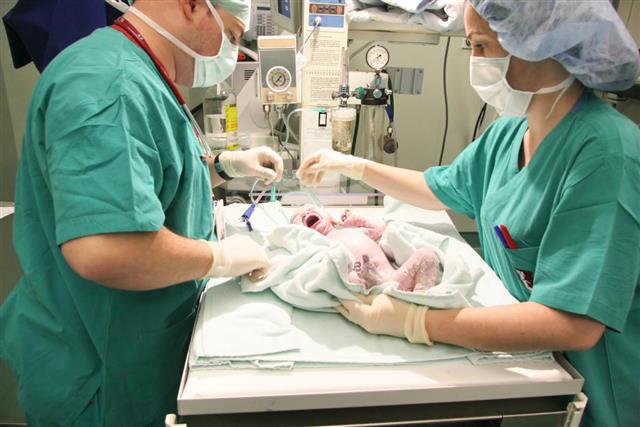A career as a registered nurse has become a lucrative option today. But to become one, you need to know the requirements and work towards your goal.

Tap to Read ➤
Education Requirements to Become a Registered Nurse
Madhurjya Bhattacharyya


A career as a registered nurse has become a lucrative option today. But to become one, you need to know the requirements and work towards your goal.

A registered nurse is responsible for allotting tasks to nursing assistants and licensed practical nurses in a hospital. They are an important part of a medical team as they help doctors during a surgery. It's a great career option for those who love nurturing people and can handle stress.

Registered nurse education requirements include going through a nursing school and holding either an associate degree or a diploma. The program includes the study of numerous topics related to the anatomy of the human body, besides diseases, nutrition and the care required.
Educational Requirements

You can become a registered nurse either by obtaining a bachelor's degree program, an associates degree or a diploma program in nursing. You need to give a licensing examination to be permitted to practice further.

If you want to grow in your career and become a nurse practitioner, nurse anesthetist or a clinical nurse specialist, you need to go through a master's degree program. A bachelor's degree in nursing typically takes 4 years to complete, while an associate degree takes about 2 to 3 years for completion and a diploma takes 3 years.

There are numerous nursing programs which give you a bachelor's or associate degree, but the number of diploma programs are relatively less.

While going through the educational requirements of a registered nurse, you need to consider the advantages and disadvantages of enrolling for either of the programs. The number of opportunities for career advancement is higher for those who go through a bachelor's program compared to the other two programs.

During your bachelor's degree program, you would go through training programs in a variety of areas like critical thinking, leadership and communication, some of the important components of taking proper care of patients.

Moreover, many a times it becomes necessary to go get a bachelor's or a higher degree program to reach teaching, consulting, research and administrative positions.

Whether it's a bachelor's program or diploma, they include instruction in the classroom for several hours a week and they are supervised by experienced professionals in healthcare facilities and hospitals.
Students go through programs in nutrition, microbiology, psychology, chemistry, physiology and anatomy besides nursing and behavioral sciences.
The students gain experience in various hospital departments like surgery, maternity, psychiatry and pediatrics, besides stints in ambulatory clinics, home health agencies, public health departments and nursing care facilities.
Once you have gone through the bachelor's degree, associate degree or diploma, you need to pass the national licensing examination called the National Council Licensure Examination so that you can practice in any state of the country.
In addition to qualifying this examination, there are different licensing examination in different states, so you need to pass them too to be eligible to practice in different states.
Many a times, it so happens that people go through a diploma or an associate degree program and then to a bachelor's degree. They work for a couple of years in entry-level positions and take advantage of tuition reimbursement and study further.
Some institutes also provide accelerated master's degree program in nursing and it takes 2 to 3 years for completion. If you complete this program, you are awarded both a bachelor's and master's degree.
Even if you choose a different career path, you can still switch to a career in nursing. If you hold a bachelor's degree in another program, you can enroll for an accelerated bachelor's degree which usually takes about a year to year and half.
Accelerated master's degree program are also available for those who hold a higher degree in another field and that usually lasts for 2 years.
Thus, the education requirements are going through at least 3 to 4 years of education in nursing and then obtaining a license so as to be able to practice in a state. Opportunities of career advancement are aplenty if you are hard working and motivated enough.